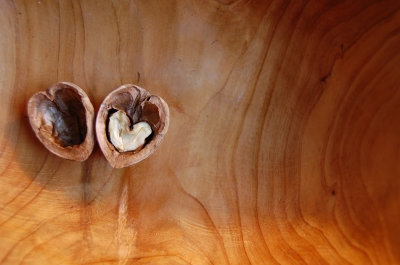Raspberries to Reduce Inflammation and Lower Cholesterol
 Berries of all kinds are a wonderful addition to any diet. Let’s look specifically at the nutrient dense raspberry.
Berries of all kinds are a wonderful addition to any diet. Let’s look specifically at the nutrient dense raspberry.
A one cup serving contains just 64 calories, 8 grams of dietary fiber, and 54% of your daily vitamin C needs.
A diet high in fiber promotes lower cholesterol and blood pressure. Studies have found for every 1-2 grams of soluble fiber each day lowers LDL cholesterol 1%. A 1 cup serving of raspberries provides 1 gram of soluble fiber.
Raspberries are low in fat and high in antioxidants, such as vitamin A, vitamin E, and vitamin C. Vitamin C is an antioxidant that boosts our immune system, increases nitric oxide, promotes wound healing, lowers triglycerides, and prevents free radical damage associated with LDL cholesterol. (Vitamin C plays many more roles in our health than what I’ve listed.)
Lower Triglycerides when you Cut Back on Sugar
 Limiting sugar intake is essential if you are working to lower triglycerides. Sugar has a direct impact on triglyceride levels.
Limiting sugar intake is essential if you are working to lower triglycerides. Sugar has a direct impact on triglyceride levels.
Here are 5 tips to cut back your daily sugar intake:
1. Gradually cut back.
If you eat a high level of sweets daily it’ll be very difficult to cut them out “cold turkey”. Gradually wean yourself off the sugar. If you have 2 cans of soda daily, cut back to 1. If you enjoy dessert with lunch and dessert, cut back and limit dessert to one meal only. Continue to wean yourself down until the sweets are an occasional treat.
2. Use sugar substitutes when baking.
Walnuts and Heart Health

There is some new evidence provided by a Yale University study linking walnuts to improved cardiovascular health. The findings show an improvement to the endothelial function in individuals with type II diabetes when study participants consumed a daily serving of 2 ounces of walnuts.
The study also found the addition of walnuts promoted increased fasting serum glucose levels, lower cholesterol levels, and lower LDL cholesterol.
Walnuts provide poly-unsaturated fatty acid omega 3’s, particularly alpha-linolenic acid (ALA). This fatty acid has been linked to many heart health benefits, such as decreased lipoprotein(a), lower triglycerides, and improved heart rhythm.
Here are a few ways to add walnuts to your diet:
- Mix walnuts with dried fruit for a nutritious snack
- Add toasted walnuts to a salad or pasta dish
- Sprinkle chopped walnuts on oatmeal or breakfast cereal
Keep in mind calories and portion control! A 1.5 ounce serving of walnuts provides ~278 calories. There are approximately 20 walnut halves in a 1.5 ounce serving.
All the best,
Lisa Nelson RD
How to Lower Cholesterol in 8 Simple Steps
http://www.lowercholesterolwithlisa.com
Image courtesy of Aleksa D / FreeDigitalPhotos.net



